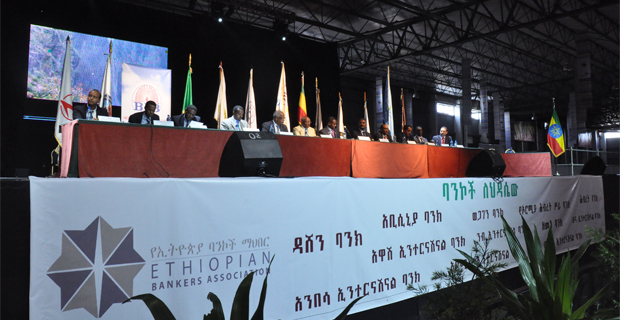
Viewpoints | Apr 17,2021
Disagreement between the Ethiopian and Saudi governments over the application of an online platform to recruit Ethiopian workers to Saudi Arabia has blocked the implementation of a labour exchange agreement.
The difference arose after Saudi officials insisted on using an automated system, ‘Musaned’, developed by the Ministry of Labour & Social Development of Saudi Arabia. The Ministry developed the system in 2014 to facilitate procedures for the recruitment of domestic workers.
The platform, which works in English and Arabic, has seven tools that clarify the obligations of both the employer and the employee, the steps of recruitment, a list of all licensed recruitment offices and companies, a description of how to file complaints, required documents for the process, pertinent information and news.
The platform is used for employees from 26 countries, including the Philippines, which make up the fourth largest group of foreigners working in Saudi Arabia and the second largest source of remittances to the Philippines.
Ethiopian officials hesitate from using the platform, because it does not include all the requirements contained in the labour exchange agreement, according to Aman Lule, Saudi Arabian desk officer at the Ministry of Foreign Affairs.
"We want to have reliable contract documents and create a safer atmosphere for the employees," he said.
Ethiopia requires the contract documents of the employers and agents to be authenticated by the Foreign Ministry of Saudi Arabia. Before reaching a final agreement between the employee and the local agent, the contractual agreement needs to be verified by the Embassy of Ethiopia in Saudi Arabia.
However, the government of Saudi Arabia disagrees with the proposed procedures presented by the Ethiopian government.
"This led to the suspension of the implementation of a labour exchange agreement," Aman told Fortune.
To resolve the issue, discussions are taking place between the ministries of Labour and Foreign Affairs of both countries, according to Aman.
While this is going on, news started to circulate on social media that claimed Saudi Arabia had removed Ethiopia from a list of counties that can send workers to Saudi Arabia.
However, Ethiopia's embassy in Riyadh rebutted this story.
"On May 29, 2019, Saudi Arabia's Ministry of Labour trained the staff of the Ethiopian Embassy in Riyadh and Consul General in Jeddah, who are delegated to handle overseas employment," reads the Facebook page of the Embassy.
Fortune'sattempt to reach officials from the Saudi Arabian Embassy in Addis Abeba bore no fruit before the paper went to print.
Nebiat Getachew, spokesperson for the Ministry of Foreign Affairs, said that his Ministry is facilitating the discussions and negotiation for the Labour Ministry.
"We are facilitators, and they [Ministry of Labour & Social Affairs] are implementers," Nebiat told Fortune.
A year and a half ago, around 500 recruitment agencies were established to facilitate overseas employment as per the bilateral agreements signed between the two countries. Due to the delay in the implementation of the deal, these agencies are sitting idle, spending money on administrative costs.
“It is a hard time for us: paying office rentals and bank loans, doing nothing,” said Seid Ahmed, owner and manager of Alfejir Foreign Employment Agency and Board Chairperson of Foreign Employment Agents Association.
To fulfill the requirement of depositing 2.8 million Br, equivalent to 100,000 dollars, in a block account, most of the agencies took loans from banks, according to Seid.
He also said that the government's refusal to use Musaned forced people to travel to Saudi Arabia illegally using the Umra pilgrimage by paying 40,000 to 50,000 Br.
Out of three million Ethiopian migrants in different parts of the world, approximately 17pc are reported to reside in Saudi Arabia.
Before the process resumed recently, the government of Ethiopia banned overseas employment travel to Saudi Arabia in 2013. The ban came after successive reports confirmed that many Ethiopians had suffered physical and psychological injuries after travelling overseas for employment.
However, the government reconsidered reinstating the travel ban in September 2018 due to an increase in illegal migration using business and tourist visas.
PUBLISHED ON
Jun 01,2019 [ VOL
20 , NO
996]

Viewpoints | Apr 17,2021

Fortune News | Sep 21,2025

Fortune News | Feb 19,2022


Fortune News | Mar 30,2019

Dec 22 , 2024 . By TIZITA SHEWAFERAW
Charged with transforming colossal state-owned enterprises into modern and competitiv...

Aug 18 , 2024 . By AKSAH ITALO
Although predictable Yonas Zerihun's job in the ride-hailing service is not immune to...

Jul 28 , 2024 . By TIZITA SHEWAFERAW
Unhabitual, perhaps too many, Samuel Gebreyohannes, 38, used to occasionally enjoy a couple of beers at breakfast. However, he recently swit...

Jul 13 , 2024 . By AKSAH ITALO
Investors who rely on tractors, trucks, and field vehicles for commuting, transporting commodities, and f...

Oct 18 , 2025
The political establishment, notably the ruling party and its top brass, has become p...

Oct 11 , 2025
Ladislas Farago, a roving Associated Press (AP) correspondent, arrived in Ethiopia in...

Oct 4 , 2025
Eyob Tekalegn (PhD) had been in the Governor's chair for only weeks when, on Septembe...

Sep 27 , 2025
Four years into an experiment with “shock therapy” in education, the national moo...